
Sedges have enjoyed unprecedented attention the last few years. Articles in The Washington Post (2017), Horticulture (2022) and Landscape Architecture (2023) introduced many gardeners to plants in the genus Carex, which are commonly referred to as sedges.
While there are colorful, variegated selections from Asia that have been in cultivation for decades, it's the North American natives getting the press. A 2023 trials report by Mt. Cuba Center put them squarely in the spotlight. The research.
team evaluated 70 different species and cultivars of native carex for the MidAtlantic region.
That may seem like a big number, but it's a fraction of the more than 500 sedges native to North America. Given the range of species, there's a sedge for every landscape situation. However, the availability of native sedges may be limited depending on where you're located. The horticultural industry is aware of this and is eagerly bringing more of them into cultivation.
The attention is notable given native sedges' low-key appearance. Their flowers tend to be small, and only a few species have showy blooms. Rather, their strength lies in their grasslike foliage and unfussy nature. They are perfectly suited to a supporting role in the garden.
Sedges' varying shades of green provide a backdrop for flashier flowering companions. The narrow blades lend visual texture that contrasts beautifully with broaderleaved perennials. They're relatively easy to grow and don't require a lot of attention.
They're also go-to plants for partial sun to shade, where turf and warm-season ornamental grasses struggle.
Although they're beautiful in their own right, I think of sedges as the backup singers of the plant world. They're not usually the stars of the show, but they tie it all together and make the performer in the spotlight shine. They're the foundation for successful combinations.
CAREX, CAREX EVERYWHERE
Denne historien er fra March - April 2024-utgaven av Horticulture.
Start din 7-dagers gratis prøveperiode på Magzter GOLD for å få tilgang til tusenvis av utvalgte premiumhistorier og 9000+ magasiner og aviser.
Allerede abonnent ? Logg på
Denne historien er fra March - April 2024-utgaven av Horticulture.
Start din 7-dagers gratis prøveperiode på Magzter GOLD for å få tilgang til tusenvis av utvalgte premiumhistorier og 9000+ magasiner og aviser.
Allerede abonnent? Logg på

WINTER READING
Pass the time with any of these inspiring books
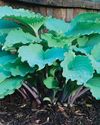
TOP-PRIZE PERENNIALS
A foliage masterpiece for shade and a late bloomer for sun

MARK WESSEL
What's new for fruit and vegetable gardeners?
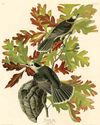
KINGS OF THE NORTHERN FORESTS
A look at the trees, shrubs and perennial plants that bolster life in Ecoregion 5
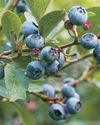
BLUEBERRIES & CO.
Members of the genus Vaccinium provide sweet flavor, health benefits and beauty in the garden
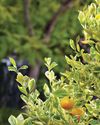
Take It Indoors
Cs the growing season dwindles, _ potted cittus became a summer souuenir
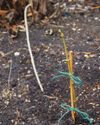
ROOTED IN PLACE
LAYERING IS A PROPAGATION TECHNIQUE THAT TAKES A WHILE TO COMPLETE, BUT IT DEMANDS LITTLE EFFORT FROM THE GARDENER

Weeding Out Worry - Two books give perspectives on gardening's importance to mental health
Two books give perspectives on gardening's importance to mental health. One is written by a psychiatrist and psychotherapist who draws on decades of experience as a clinician and a gardener to discuss how gardening and interaction with the natural world benefit us. The other is written by a woman with mental illness whose efforts at becoming well brought her to outdoor activities, including gardening.
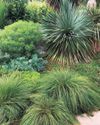
A Big Role for SMALL GRASSES
The unexpected benefits of small native grasses
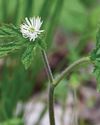
GOLDENSEAL
A woodland herb worth guarding